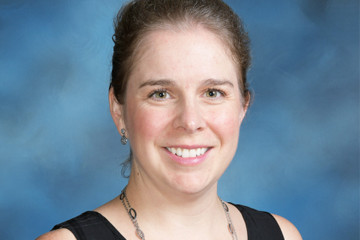
Lifelong Learning and World Class Research at TIS
Our mission at TIS is to create lifelong learners. While this traditionally applies to our students, it is also true about our teachers. Therefore, we strive to create an all-encompassing culture where everyone is engaged in lifelong learning.
Our teachers have a passion for learning. So after a long day of teaching, coaching and supervising, they head home and crack open textbooks or join online classrooms from some of the top universities in the world.
Lifelong Learning What Is It?
Lifelong learning can be defined as a form of self-initiated education that is concentrated on personal development. It is generally referred to as learning outside a formal setting such as an educational institution, university or corporate training.
As human beings, we are curious and naturally predisposed to learning new ideas throughout our lives. Moreover, personal fulfilment and development lead us to further study areas of interest and help us to grow no matter the age.
A staff that is focused on learning is constantly improving and bringing new ideas and higher levels of expertise to our classrooms.
Lifelong learning is essential in our fast-paced, constantly changing society. Students, teachers, and adults must “learn how to learn” (Tasci and Titrek, 2019). The future belongs to those that can “learn, unlearn and relearn”. Lifelong learning is necessary for sustainable leadership. It is essential for implementing a resilient culture for continuous development (Khan, M.I., 2018).

The ongoing pandemic has limited our ability to travel but not to learn. Teachers, too, have had to rely on distance learning to continue their learning and research. Online courses and the like now form part of lifelong education.
Education today should prepare a person for freedom and responsibility in the digital environment. Successful lifelong learning requires the development of an information culture and the ability to adapt to constant changes (Ignatyeva, Kozlova, and Ryabkova, 2020). It is essential that teachers model this for our students.
Embracing Lifelong Learning At TIS
Teachers have an important role to play in shaping future generations. They need to be creative as well as knowledgeable to inspire the students whom they are educating. Here is how the teachers at TIS are embracing the culture of being lifelong learners.

Amanda Kiat. Elementary Vice Principal, TIS
Studied Masters in Educational Leadership
When I completed my Masters in Educational Leadership, I was curious to find out how streaming or grouping students by levels affect their learning and reading and writing growth. Ability-grouping, or streaming, has long been used to help ensure teachers can pace the instruction in their classes to better address students' needs. As a result, the resources teachers use can be more consistent and learner-appropriate, as differentiation will not need to be addressed in the same manner. My research focused on English language learners and literacy instruction; I was interested to discover how students feel about being grouped by their reading and writing capabilities. Would they prefer it, or would they feel more comfortable being in heterogeneous groupings? My thesis examined teacher and student perceptions and results of ability grouping when students were separated into homogeneous groups for their literacy instruction.

Nick Chignall, Elementary Teacher, Grade 2, TIS
Studied Masters Early Childhood Education
Contextualizing Early Childhood Education for International Schools
My research is centred around how international schools should contextualize early childhood learning and community relationships to build strong family partnerships and access the communities funds of knowledge to support student learning. This includes examining culturally varied practices in parenting, feeding habits, sleep and well-being between Western approaches and those in China. As well as how culturally responsive pedagogy and leadership can empower and engage children in personally meaningful learning and identity formation. My research helps me to communicate better with all of our parents.

Lydia Mak, Secondary Science Teacher, TIS
Studied Masters of Science
Research carried out for my Masters of Science degree assesses the ecological benefits of a coral reef restoration project within a Marine Protected Area (MPA) in Indonesia. Fieldwork focused on examining the ecological functions and the resilience of the restored reef using the biodiversity of butterfly fish and herbivorous fish as indicators. The results demonstrated that while newly restored reefs do not provide the full functions of mature natural reefs yet, they provide a host of ecological functions that outweigh those of damaged and unrestored reefs. Furthermore, the results of this research showed that ecosystem restoration, while costly, is a possible option for speeding up the recovery of damaged reef systems. I am excited to share this research and passion for the ocean with our TIS students in the Activist in Residence program.

Jace Ferguson, MS Social Studies and PE Teacher TIS
Studied Master of Science in Coaching and Sport Science
Thesis: Specialization vs. Multi Sport Participation: Effects on Athlete Development
Many people think that it is skill performance and execution that separates elite level athletes from the competitive pack. It is emotional intelligence and the athletes ability to regulate their emotions. Skill wise, both groups are similar but the ones that make the jump from competitive to elite level athletes have higher recorded emotional intelligence.

Dominic Masters, Middle School Vice Principal & PE Teacher, TIS
Studied Masters of Educational Leadership and Management
Masters Dissertation: Relationship Between Emotional Intelligence and Well-Being
How does emotional intelligence affect well-being in international schools? My analysis of the results demonstrated a positive relationship between emotional intelligence and occupational well-being. In addition, emotional intelligence increased with age and teachers had higher emotional intelligence, but lower occupational well-being, than non-teaching staff. It is recommended that teaching assistants are given more workplace responsibility. In addition, the school could introduce mixed gender, age, and peer support groups. Furthermore, age should be considered when applying for leadership positions due to lower EI associated with younger workers, although years of experience may be a better indicator. If the school introduced initiatives to improve OWB and EI it is expected that there would be reduced turnover, reduced absenteeism and improved performance of staff and students

Leah Rawlings, Senior Kindergarten Teacher, TIS
Studied Master of Education degree
Les facteurs qui inspirent la lecture chez les garçons en immersion française au deuxième cycle de l’élémentaire and in English, Factors That Inspire Reading for Boys in French Immersion in Upper Elementary
My action research explores the factors that inspire reading in a second language for a group of grade 5 boys in a French Immersion classroom. The participants identified a lack of vocabulary in French as one of the main reasons reading in their second language is so difficult. They relied heavily on the use of visuals to make sense of what they were reading. The research also highlights the importance of the role of the teacher in inspiring the boys by understanding their reading interests, dialoguing with them and helping them to discover new books.

Doina Tonner, MS ELA & ELL Teacher, Head of English, TIS
Published Author. Currently Pursuing Non Fiction Writing Courses.
Currently pursuing my passion for creative non-fiction writing through courses offered by North American Institutions. The classes range from how to craft scenes within a larger work to writing poetry and different types of personal essays, to submitting for publication. I am sharing what I’ve learnt with my students in the Creative Writing ECA. In addition to this I am working on a volume of poetry as well as a full length memoir about my experience in post communist Romania in the aftermath of the revolution.

Howard Stribbell, Interim Head of School, TIS
Currently Pursuing PhD in Technology, Education and Management
While my PhD has required a significant commitment of time and energy, I am excited to be able to conduct research at TIS. I want to find out what influences parent satisfaction at school. I am researching the impact of social media, communication and branding on parent expectations and how parent experiences at the school impacts parent satisfaction. I will be collecting my data from TIS parents in November and December and I hope that everyone will be able to participate - this data will help us provide better service to our parents and, ultimately, to our students.
As a school community we are incredibly proud of the study that our teachers have been involved in and we look forward to hearing about their future academic endeavours.



